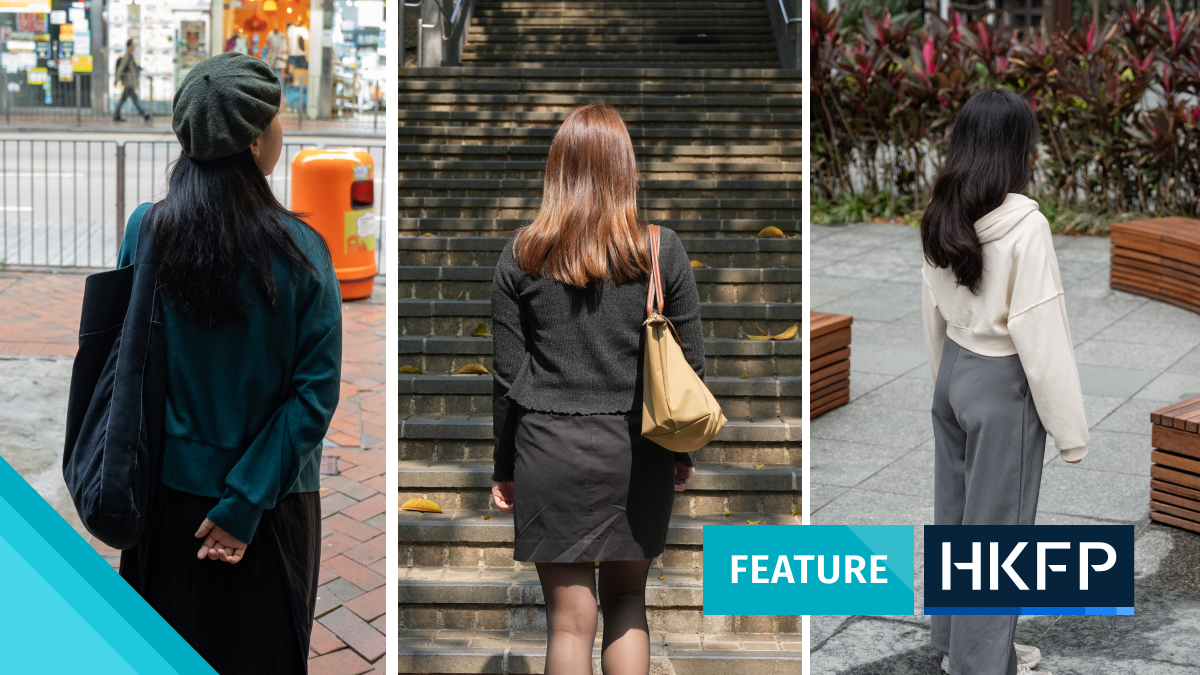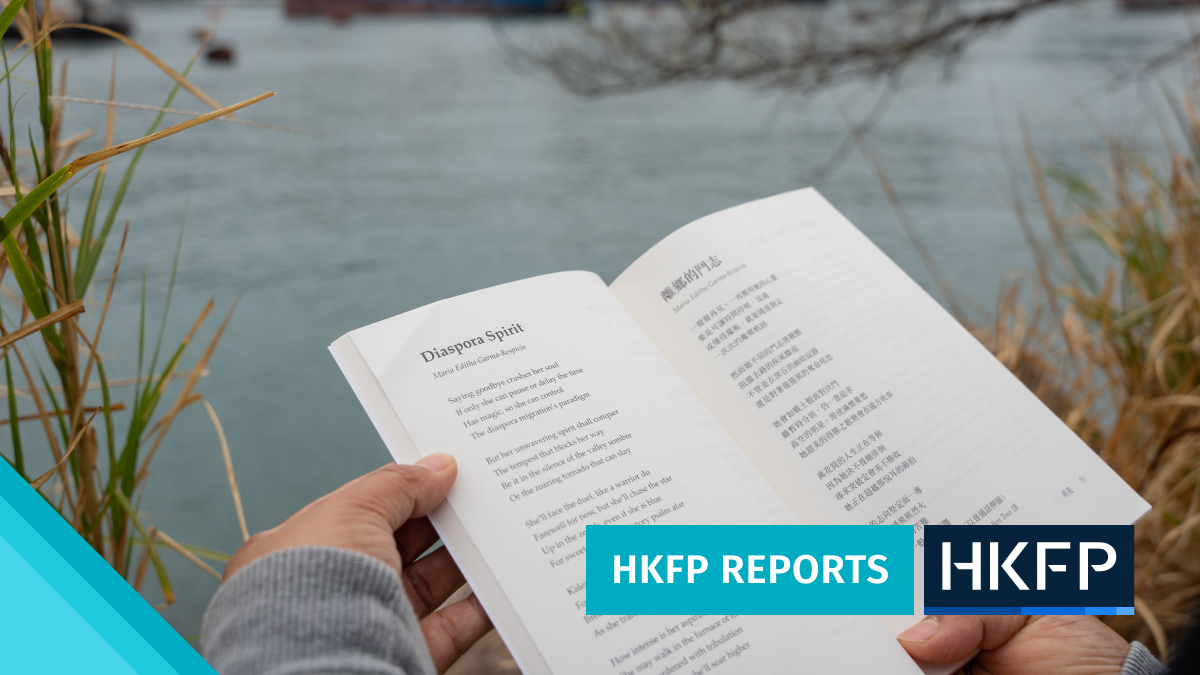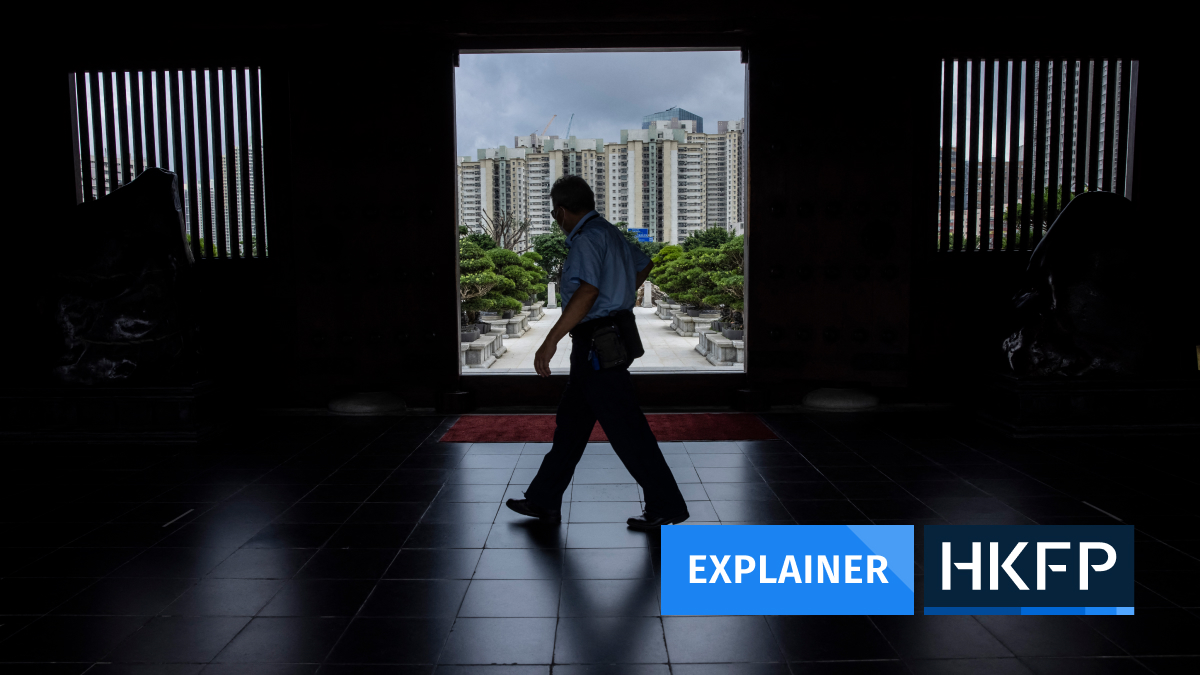In 2013, newly-inaugurated leader Xi Jinping called on China’s external propaganda organs to “tell China’s story well,” as Beijing sought to better control the narrative globally. Over a decade on, top Hong Kong officials – including John Lee, Algernon Yau, Paul Chan and Frank Chan – have repeatedly urged the public and press to tell “good Hong Kong stories.”
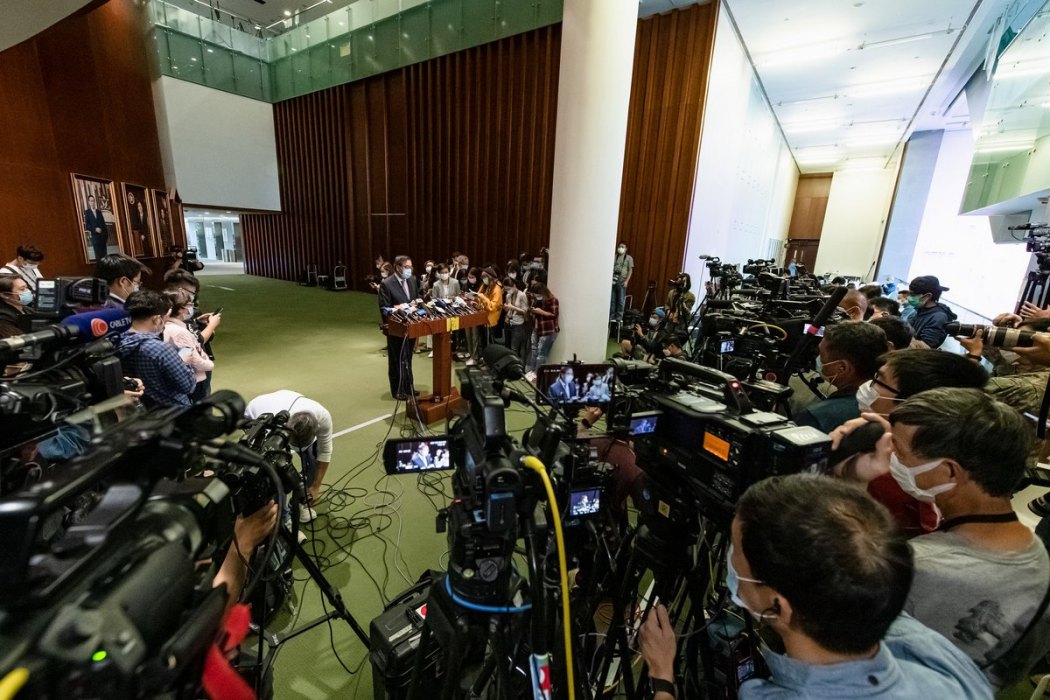
The demands for positive news coverage come as the city seeks to repair its international standing after years of strict Covid isolation, a waning economy, and a political crackdown following months of protests and unrest in 2019. As Hong Kong nosedived in the press freedom rankings, the diversity of the media landscape shrank, with newsrooms raided, outlets disbanding, and journalists put behind bars. As for international outlets, officials engaged in a letter-writing campaign to rebut their editorials, sometimes coupled with threats.
Last Wednesday, Chief Executive John Lee again told pro-establishment media figures to “tell good stories of Hong Kong’s special advantages, international business environment and captivating nature at our doorstep… to counter the slander and attacks aimed at Hong Kong.”
But whilst the government’s own Information Services Department, and pro-establishment media outlets, are often granted access to tell “good stories,” other local and international outlets are rejected.
When asked about the difficulties HKFP faced when approaching government departments, Lee – at a press conference on Tuesday – said that media organisations should indicate what they want to do when they reach out: “Government departments everyday receive a lot of requests from different media and a lot of requests have been granted… as you can see [there is coverage] in a lot of newspapers, in TV interviews, and as well as other online forums,” he said, adding that departments must balance media requests with their other duties.
Last year, HKFP sought to heed Lee’s call to “tell a good Hong Kong” story and reached out to almost a dozen government departments with ideas for picture-led features about their work.
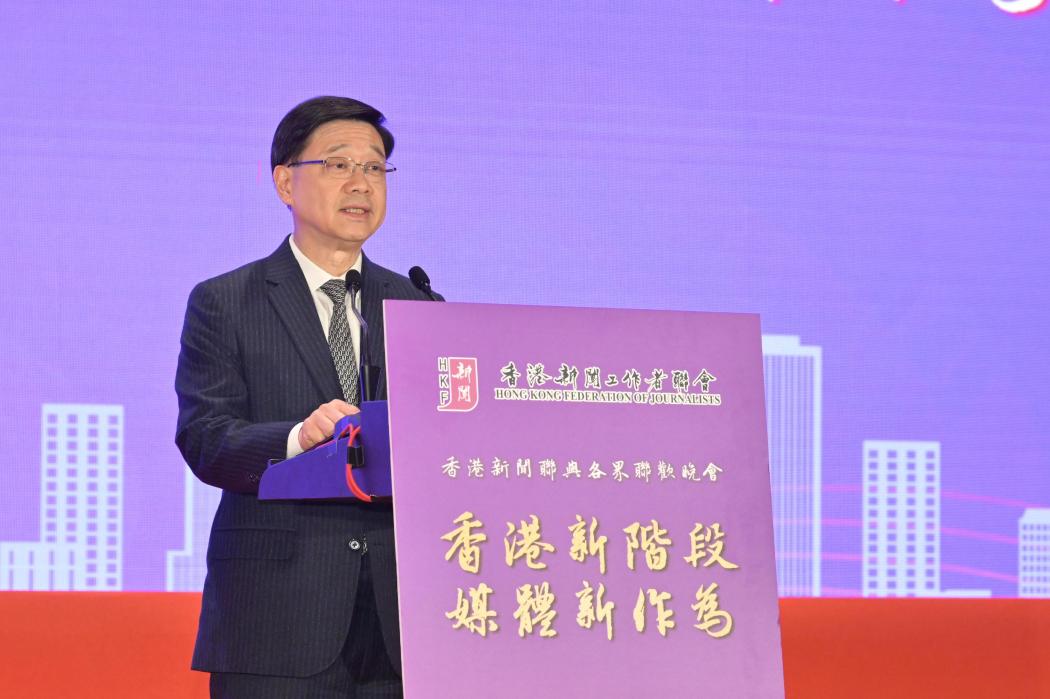
In each case, HKFP sought compromises, offered full flexibility over timing, and emphasised that alternative ideas were welcome. In all but two cases, our enquires were rebuffed. Their responses are gathered below.
Fire Services Department:
Last year, HKFP sought to create a multimedia feature about the unique challenges faced by the Fire Services Department on outlying islands.

We requested a short visit to speak to firefighters stationed on Lamma, Peng Chau or Cheung Chau to see how they prepare for the day, conduct their work, assist other departments, maintain gear, stay fit, and train staff.

Four days later, the Fire Services Department responded, stating: “We regret to inform you that your interview request could not be acceded to.”
Hong Kong Police Force:
HKFP asked the police if a reporter and photographer could spend a day, or a few hours, with the canine unit to see how officers care for dogs, liaise with other police teams, and stay fit.
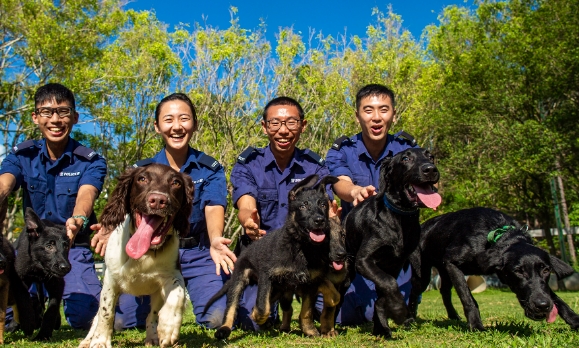
The piece aimed to enlighten the public about how animals are used, and trained, in local policing.

An initial phone call, the next day, suggested an arrangement could be made. But three follow-up emails over eight days resulted in an email stating: “We are sorry to inform you that no interview could be arranged.”
Lands Department:
We asked the Lands Department if we could profile a government cartographer or surveyor.

HKFP hoped to spend a few hours learning about mapping work and surveys, the role of technology, how archives are maintained, and how the job had changed over the years.

Again, an initial phone call suggested the department was open to a story. But days later, an email stated: “Thank you for your email. We regret to inform you that we cannot accede to the request.”
Correctional Services Department:
HKFP approached the Correctional Services Department with a story idea about how they ensure prisoner welfare.

We asked if they could provide accompanied access to a prison library, a work house or canteen for a behind-the-scenes feature. We also suggested visits to a training academy or rehabilitation centre, if a prison visit was not possible.

Four days later, the department replied: “Regarding your request for a visit to a correctional institution, we regret to inform you that arrangements cannot be made.”
Government Laboratory:
We contacted the government’s Forensic Science Division about writing a feature to help readers understand how it provides analytical and scientific data to the police and Hospital Authority.
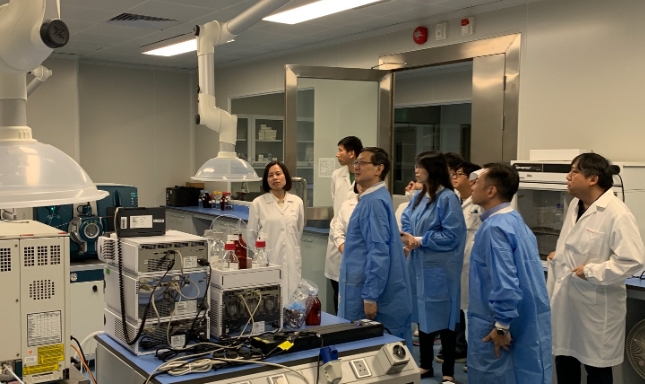
What tools do they use? How is technology changing the job? How does the lab help with crime reconstructions?
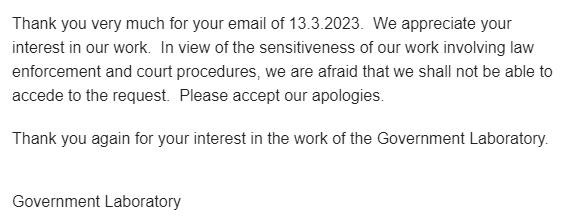
Although HKFP said it welcomed alternative ideas and would ensure confidentiality, the lab replied a week later, stating that was unable to assist “[i]n view of the sensitiveness of our work involving law enforcement and court procedures.”
Government Flying Service:
For a story about medical evacuations, or country park rescues, HKFP asked the Government Flying Service if we could spend a few hours with a team that were on call.

We hoped to share with readers how officers prepare for the day, conduct their work and stay fit, adding that we were open to visiting a training school.

A day later, the service replied: “In view of our operational constraints, we regret to inform you that we are unable to accede to your request.”
Drainage Services Department:
HKFP approached the Drainage Services Department about a visit to the Sha Tin Sewage Treatment Works.

We hoped to show readers how the city ensures water security throughout the year, and how water treatment technologies are helping with efficiency.

Despite stating we were fully flexible with timing, a spokesperson replied: “[U]nfortunately, we are unavailable to take up the interview as we are fully engaged.”
Customs and Excise Department:
With Customs stepping up checks for drugs such as CBD, HKFP asked the Customs and Excise Department if we could assign a reporter to learn more about the airport’s sniffer dogs.

The feature would touch on how officers conduct their work, success stories, and training procedures.

A day later, the Information Unit responded: “We appreciate your proposal for a multimedia feature about Customs Detector Dogs. Unfortunately, the Customs Canine Force is fully occupied and unable to arrange an interview. Nevertheless, I wish you the best of luck with your work.”
Hong Kong Observatory:
HKFP heard back from the Observatory by phone after emailing about a story on government meteorologists.

We discussed the possibility of meeting staff, or visiting a rural Observatory station or lab.

Multiple follow-up emails over a month did not elicit a response, until a reply came suggesting the weather was not suitable for an interview or photoshoot: “Unfortunately, it may not be feasible for us to take up relatively in-depth media interviews/shooting at this stage as the rainy/tropical cyclone season of Hong Kong is approaching. Perhaps we can discuss the matter again in the dry season?”
Some departments were more open to the media. The Marine Department’s Vessel Traffic Centre said they would reply to questions over email and send photographs, but would not allow a tour or any in-person interviews, visits, or photography by HKFP.

There was also one success story. Although the Agriculture, Fisheries and Conservation Department would not arrange access for an HKFP photographer, a reporter was invited to visit the Equine Disease Division’s facility to learn about how the quarantine centre ensured the health and safety of horses following the Covid-19 pandemic.
HKFP published the story on May 22, 2023, but still struggles to elicit positive responses to story pitches.
Hong Kong has plummeted in international press freedom indices since the onset of the security law. Watchdogs cite the arrest of journalists, raids on newsrooms and the closure of around 10 media outlets including Apple Daily, Stand News and Citizen News. Over 1,000 journalists have lost their jobs, whilst many have emigrated. Meanwhile, the city’s government-funded broadcaster RTHK has adopted new editorial guidelines, purged its archives and axed news and satirical shows.
See also: Explainer: Hong Kong’s press freedom under the national security law
In 2022, Chief Executive John Lee said press freedom was “in the pocket” of Hongkongers but “nobody is above the law.” Although he has told the press to “tell a good Hong Kong story,” government departments have been reluctant to respond to story pitches.
Support HKFP | Policies & Ethics | Error/typo? | Contact Us | Newsletter | Transparency & Annual Report | Apps
Help safeguard press freedom & keep HKFP free for all readers by supporting our team

Original reporting on HKFP is backed by our monthly contributors.
Almost 1,000 HKFP Patrons made this coverage possible. Each contributes an average of HK$200/month to support our award-winning original reporting, keeping the city’s only independent English-language outlet free-to-access for all. Three reasons to join us:
- 🔎 Transparent & efficient: As a non-profit, we are externally audited each year, publishing our income/outgoings annually, as the city’s most transparent news outlet.
- 🔒 Accurate & accountable: Our reporting is governed by a strict Ethics Code. We are 100% independent, and not answerable to any tycoon, mainland owners or shareholders. Check out our latest Annual Report, and help support press freedom.
- 💰 It’s fast, secure & easy: We accept most payment methods – cancel anytime, and receive a free tote bag and pen if you contribute HK$150/month or more.
MORE Original Reporting
HKFP has an impartial stance, transparent funding, and balanced coverage guided by an Ethics Code and Corrections Policy.
Support press freedom & help us surpass 1,000 monthly Patrons: 100% independent, governed by an ethics code & not-for-profit.





